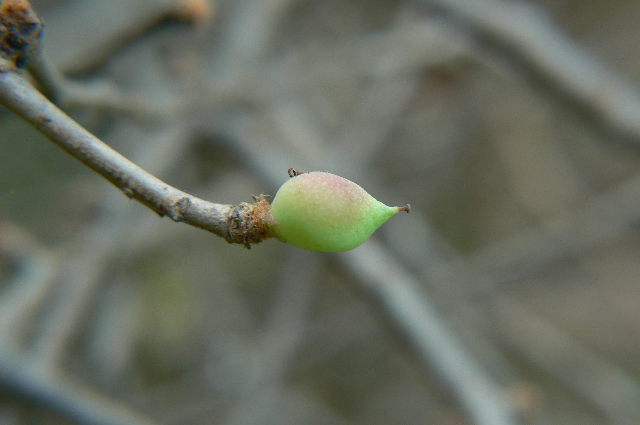Guggul is made from the oily sap (gum resin) of the guggul tree (Commiphora Wightii). The guggul tree grows in India, Bangladesh, and Pakistan. This tree has been used in Ayurvedic medicine for centuries, and Ayurvedic texts dating back to 600 BC recommend it for treating atherosclerosis.
Today guggul gum resin is used for arthritis, lowering high cholesterol, “hardening of the arteries” (atherosclerosis), acne and other skin diseases, and weight loss.
Guggul contains plant steroids that might affect cholesterol levels in the body. One of these substances might also reduce redness and swelling from acne. People use guggul for acne, obesity, high cholesterol, and arthritis.
Ayurvedic Indications Of Guggul
The holistic science of Ayurveda recognizes this plant compound as a powerful Rasayani Dravya and cited it in ancient Ayurvedic scriptures of Charaka Samhita and Raj Nighantu for treating various problems, including:
- Medohara (treats obesity)
- Vatahara (treats arthritis)
- Hridya (treats cardiac problems)
- Trutahara (relieves excessive thirst),
- Kustha (treats skin disorders),
- Varnya (improves complexion),
- Rasayani (rejuvenates the whole body),
- Swara (improves voice quality)
- Balya (improves muscle strength),
- Dahahara (relieves burning sensation),
- Mehahara (treats urinary tract disorders),
- Rasayani (rejuvenates the whole body),
- Deepana (enhances stomach fire),
- Pachana (helps in digestion),
- Rochana (stimulates appetite),
- Amahara (treats indigestion)
- Kamala (prevents jaundice),
- Prameha (manages diabetes).
Dose
Guggul has most often been used by adults in doses of 0.5-1 gram by mouth three times daily for up to 75 weeks. Speak with a healthcare provider to find out what dose might be best for a specific condition.
Safety precautions:
Guggul is possibly safe when used for up to 24 weeks. It's usually well-tolerated, but some people may experience a bitter taste when ingested.
Side effects
Side effects might include stomach upset and headache.
- Pregnancy: Guggul is likely unsafe when taken by mouth during pregnancy. It might stimulate the uterus and cause a miscarriage.
- Breast-feeding: There isn't enough reliable information to know if guggul is safe to use when breast-feeding. Stay on the safe side and avoid use.
- Guggul can slow blood clotting. This might cause bleeding or bruising in people with bleeding disorders.
- Hormone-sensitive condition such as breast cancer, uterine cancer, ovarian cancer, endometriosis, or uterine fibroids: Guggul might act like estrogen in the body. If you have any condition that might be made worse by exposure to estrogen, do not use guggul.
- Surgery: Guggul might increase the risk of bleeding during and after surgery. Stop using guggul at least 2 weeks before a scheduled surgery.
- Underactive or overactive thyroid (hypothyroidism or hyperthyroidism): Guggul might interfere with treatment for these conditions. If you have a thyroid condition, speak with a healthcare provider before use.
- When taken by mouth: Guggul is possibly safe when used for up to 24 weeks. It's usually well-tolerated, but some people may experience a bitter taste when ingested. Side effects might include stomach upset and headache.
- When applied to the skin: There isn't enough reliable information to know if guggul is safe or what the side effects might be. Some people might develop an allergic rash.
Major Interaction
Do not take this combination!
- Estrogens interact with GUGGUL.
- Guggul contains chemicals that might work like estrogen. Taking large amounts of guggul might increase the side effects of estrogen.
Moderate Interaction
Be cautious with this combination!
- Birth control pills (Contraceptive drugs) interacts with GUGGUL: Some birth control pills contain estrogen. Guggul contains chemicals that might work like estrogen. Guggul might increase the side effects of birth control pills.
- Diltiazem (Cardizem, others) interacts with GUGGUL: Taking guggul can decrease how much diltiazem the body absorbs. Taking guggul along with diltiazem might decrease the effects of diltiazem.
- Medications changed by the liver (Cytochrome P450 3A4 (CYP3A4) substrates) interacts with GUGGUL: Some medications are changed and broken down by the liver. Guggul might change how quickly the liver breaks down these medications. This could change the effects and side effects of these medications.
- Medications that slow blood clotting (Anticoagulant / Antiplatelet drugs) interacts with GUGGUL: Guggul might slow blood clotting. Taking guggul along with medications that also slow blood clotting might increase the risk of bruising and bleeding.
Propranolol (Inderal) interacts with GUGGUL: Guggul might decrease how much propranolol the body absorbs. Taking guggul along with propranolol might decrease the effects of propranolol. - Tamoxifen (Nolvadex) interacts with GUGGUL: Tamoxifen is used to help treat and prevent cancers that are affected by estrogen levels in the body. Guggul might affect estrogen levels in the body. By affecting estrogen in the body, guggul might decrease the effects of tamoxifen.
- Thyroid hormone interacts with GUGGUL: Guggul might increase thyroid hormone in the body. Taking guggul along with thyroid hormone therapy might increase the effects and side effects of thyroid hormones.
Rosuvastatin (Crestor) interacts with GUGGUL
Guggul might increase how much rosuvastatin the body absorbs. Taking guggul along with rosuvastatin might increase the effects and side effects of rosuvastatin.
Guggul is an ayurvedic remedy that is widely used for treating health issues like obesity, arthritis, indigestion, gastritis, constipation, asthma, cough and cold, infections, ulcers, skin infections, kidney stones, lipid accumulation, etc. Imbued with potent phytochemical constituents, seek benefit from this powerful Rasayani dravya with proper doctor's guidance.

